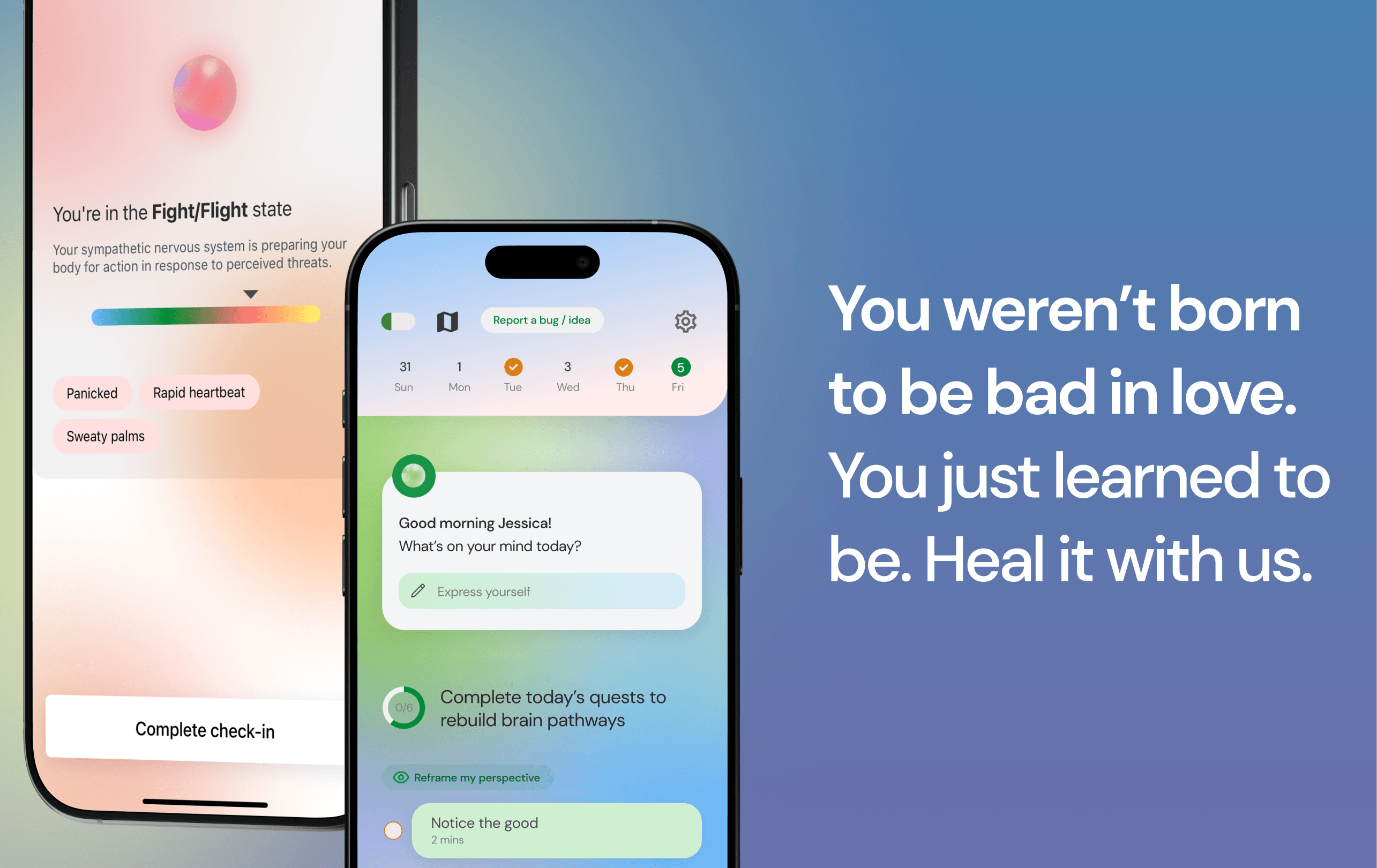Insurance Doesn't Cover Therapy? 5 Smarter (and Affordable) Alternatives That Actually Work for the Self-Employed, No Insurance

Insurance Doesn't Cover Therapy? 5 Smarter (and Affordable) Alternatives That Actually Work for the Self-Employed, No Insurance
Therapy can cost you $1,000/month — especially if you're self-employed and uninsured. But what if you could get real support, targeted help, and emotional clarity without the price tag?
If you've ever looked into therapy as a self-employed person, you've probably had a moment where you thought:
"Wait, how much?"
Yeah. You're not imagining it.
In the U.S., therapy can cost anywhere from $100 to $250 per session, this is WITHOUT insurance coverage! If you're self-employed, you're probably paying out of pocket. Even with marketplace insurance, mental health coverage is notoriously limited, with high deductibles and confusing networks.
Let's not get us started about how ridiculous this is...
So what happens if you need support but can't swing $1,000/month just to feel like a functioning human?
You still have options. Good ones.
Here's your step-by-step plan to get the support you need — without the therapy bill.
Step 1: Get Clear on What You Actually Need
Before diving into therapy (or alternatives), take a moment to ask yourself:
What am I hoping will change?
Are you looking for help with:
- Anxious thoughts or spiraling?
- Relationship patterns that leave you stuck?
- Burnout or work identity confusion?
- Drinking or coping mechanisms that feel out of control?
This might feel overwhelming, but a quick 10-minute journal check-in can make things clearer:
- What's been hard lately?
- What do you keep ruminating on?
- What emotion shows up the most — anger, shame, loneliness, anxiety?
Knowing what you're really trying to work through helps you choose the right kind of support. Not just the most obvious (or expensive) one.
Step 2: Consider Coaching or Targeted Tools Instead
If out-of-pocket therapy is too much right now, coaching can be a more affordable, goal-focused option. A coach won't do trauma work, but they can help with issues like:
- Relationship dynamics
- Career burnout
- Emotional regulation
- Building confidence or boundaries
Coaches often run on monthly packages or intensive programs — and some apps now do the same, offering deep support without the weekly calendar drain.
Take relationships, for example…
Step 3: Don't Underestimate Specificity
General talk therapy is great — but it's also broad.

Your current issue is the visible problem. Once you know the root cause, you can save hundreds of dollars.
Sometimes a targeted solution gets to the root faster. If your issue is relational, go there. If it's burnout, don't default to general anxiety — explore systems, identity, boundaries.
Think of it like this:
- Therapy is like hiring a generalist
- Getting a specialized tool or coach is like hiring a specialist with a zoom lens
And bonus: it's usually 10x cheaper.
Step 4: Example: If It's a Relationship Issue, It Might Be Attachment
Does this sound familiar to you?
"Why are you shutting me out again?"
"Not this again..."
Over-texting, shutting down, panicking when things feel distant — actually trace back to something deeper:
Your attachment style.
Attachment theory is the idea that we all develop emotional blueprints based on how safe and seen we felt growing up. These blueprints shape how we relate to intimacy as adults.
The four core styles are:
- Secure: Comfortable with closeness and independence
- Anxious: Fear of abandonment, often over-attuned to others
- Avoidant: Discomfort with emotional closeness, values independence
- Disorganized: A mix of both — push-pull dynamics
Understanding your attachment style can change everything in how you show up in romantic, platonic, and even work relationships. And the best part?
You don't need to go to therapy just to learn it.
And here's something most people don't know:
Most generalist therapists don't specialize in attachment at all.
Many therapists are generalists, meaning they cover a broad range of issues but may not have deep expertise in specific areas like attachment theory. This is where specialized tools or coaches can be more effective and cost-efficient.
Step 5: Explore Affordable Alternatives
Here are five affordable alternatives to traditional therapy that can provide meaningful support:
1. Self-Help Books and Workbooks
There are numerous books focused on specific issues like anxiety, depression, and relationship dynamics. They often include exercises and strategies you can implement on your own.
2. Online Support Groups
Platforms like Reddit, Facebook, or specialized forums offer communities where you can share experiences and receive support from others facing similar challenges.
3. Mental Health Apps
Apps like Attached provide targeted support for relationship issues, offering personalized meditations, journaling prompts, and AI-driven coaching tailored to your needs.
4. Sliding Scale Therapists
Some therapists offer sliding scale fees based on your income, making sessions more affordable.
5. Community Resources
Local community centers or non-profits often provide free or low-cost counseling services.
Final Thoughts
While traditional therapy is valuable, it's not the only path to mental wellness, especially for self-employed individuals without insurance. By identifying your specific needs and exploring targeted, affordable alternatives, you can find effective support without the hefty price tag.
Remember, taking the first step towards seeking help is a sign of strength. Explore these options and find what works best for you.
The Attached app helps make this process easier with:
- Daily Quests for habit-building.
- Help Mode for tough emotional moments.
- AI Journal to find hidden emotional patterns.
- Weekly Coaching from Eden, your relationship guide.
Download Attached for free and start working toward stronger emotional security.

